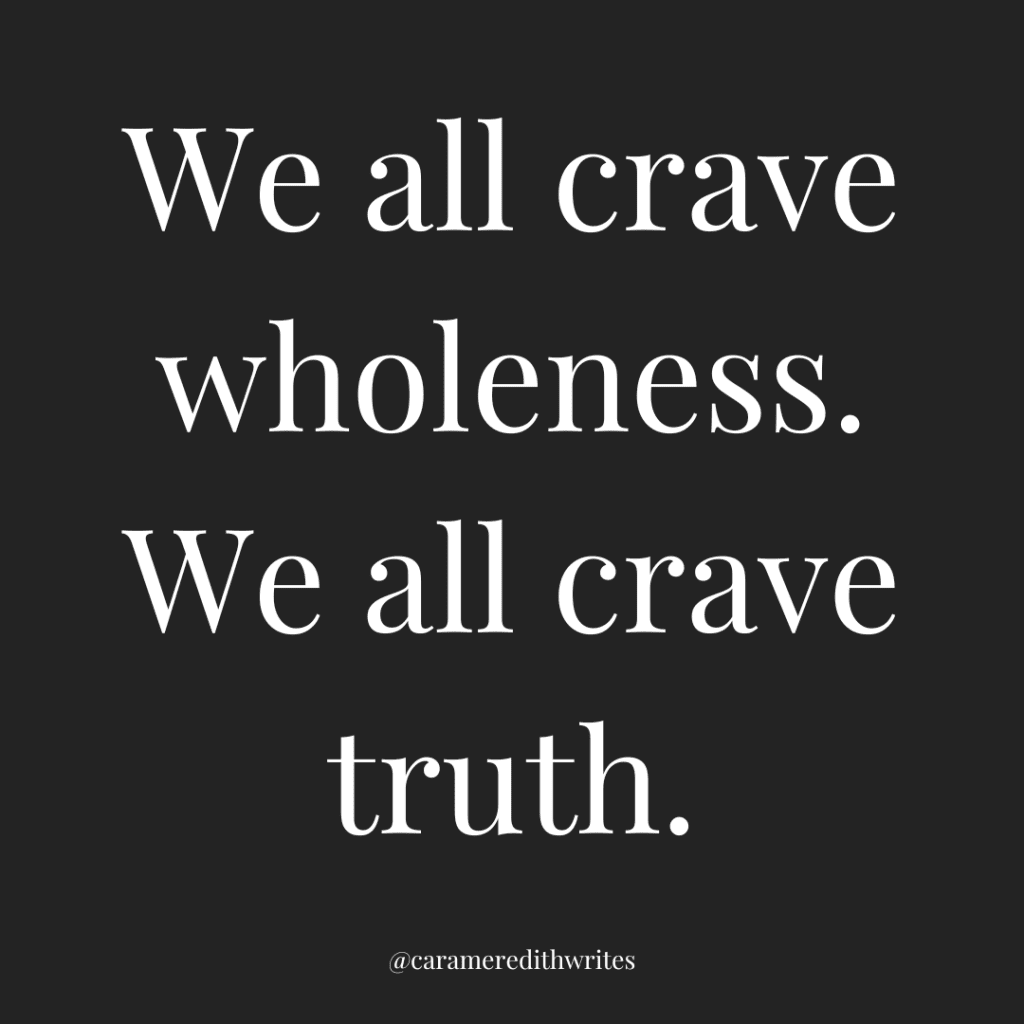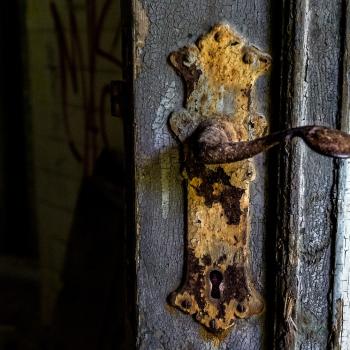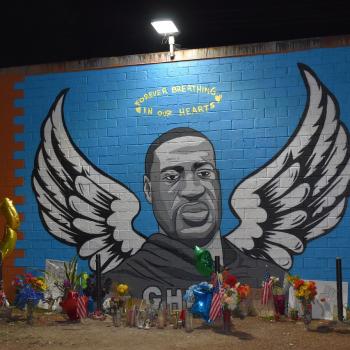We all crave wholeness. We all crave truth.
Yesterday, my family hit up the localist of local baseball games: we jumped in our car, right around 12:30 to attend our first-ever Oakland Ballllllersssssss game.
It was everything a minor league baseball game should be: a couple of food trucks, one with garlic noodles, another with ballpark nachos. Familiar faces, a giggling kind of laughter, wholesome, good hometown fun. Autographs from the players and the chance for our younger son to dress in a head-to-toe polyester opossum costume and race the larger opossum mascot across part of the field.
Even if the Ballers were losing 9-1 when we graciously made our exit, it was still nothing short of a memorable afternoon.

Our family of four wound our way through Oakland, from West Oakland, through part of downtown and around the lake to East Oakland. As we neared the end of our urban scenic route, we even stopped by the Habitat for Humanity store to see if they might have a sliding screen door to fit the family room patio doors. The boys played foursquare in the parking lot, while James and I hemmed and hawed, measuring and figuring out life, one ill-fitting screen door at a time.
By the time we got home ten minutes later, we trudged into the house, hot and sweaty and perhaps a little too full from ballpark nachos. I dumped the contents of my bag onto the dining room table: sunglasses, cell phone, sunblock, wallet, check. Keys, no check.
I checked again. No keys. I walked out to the car, I opened doors, I looked under floormats. I sent my husband out to do the same, no sooner repacking my bag to head back to the game to most certainly find my keys in General Admission, Section A.
As the two of us kept tearing apart the car for the keys, I found myself thinking about the fact that it was sure to be a hard week if I couldn’t find my keys. Sure, we probably had an extra house spare, but what of our shared car? How were we going to finagle that puzzle piece, with work and play and errands and everything in between?
Because in a way, keys are a form of wholeness. Without them, the car doesn’t work, the door remains locked. Without them, things don’t quite work the same way.
But then, lo and behold, my husband reached into the right pocket of his jeans and pulled out a set of keys. My keys, I’ll have you know. Then he reached into the left pocket of his jeans and pulled out another set of keys. His keys, in case you’re wondering.
Two sets of keys, there before our eyes. We had, apparently, been made whole.
After all, we all crave wholeness. We all crave truth.
Which leads us to our gospel reading today: Mark 5:21-43 is one of my favorite passages in all of the bible. It’s a whole truth, and nothing but the truth, kind of story. Here, readers come face-to-face with a sandwich tale of interactions: two slices of bread sit on the outside of a couple slices of turkey and perhaps a slice of cheese. The “bread,” so to speak, involves a story of a rich and powerful man, a leader of the synagogue, Jairus. Although Jairus was a very powerful man, there was nothing he could do to heal his twelve-year-old daughter.
“My little daughter is at the point of death,” he says to Jesus, over and over again, “repeatedly,” as the text points out. “Come and lay your hands on her, so that she made be made well and live.” Jesus, at least according to Mark, doesn’t speak an answer, but Jairus starts to follow Jesus through town.
As they walk, a large crowd begins to trail behind them, pressing in and up against them, for they are, presumedly, on their way to Jairus’ house to heal his daughter.
But this is where the couple slices of turkey and perhaps a slice of cheese come in because while they are walking, while the crowds are pressing around them, something else happens. A woman who was quite the opposite of Jairus, who was powerless, who did not hold a position in the synagogue but had not been allowed to go to the synagogue because she had been bleeding for twelve years, was also in a place of desperation.
Probably like Jairus, the father of the young girl, she had tried everything. Probably like Jairus, she was out of ideas, but she’d heard of this one man, a healer, a restorer, a scandalous and “unclean” boundary crosser named Jesus the Christ (here).
There, in the middle of the crowd, while throngs of people were pressing up against him at the exact same time, she mumbled aloud, “If I but touch his cloak, I will be made well.” So she did: she touched his cloak, even though she knew touching him would defile him. But she doesn’t it anyway, and the result? Mark writes that “immediately her flow of blood stopped, and she felt in her body that she was healed of her disease.”
She had been made whole. She had cast her lots with the famous healer himself and he had healed her.
I wish we had another 45 minutes to dive into the details of this story, because it only, keeps getting better: Jesus knows that the power has gone out of him. When he asks, “Who touched me?” it’s a rather ludicrous and wholly irrelevant question, one might say. Everyone was touching him and pressing in on him and crowding against him in the moment, she knew he was talking about and to her. But the woman – who is not ever named – shows bravery. She comes in fear and trembling to him. She falls down before him. She tells him her whole story. To her, he says, “Daughter, your faith has made you well; go in peace, and be healed of your disease.”
At this point, we are merely halfway through the account: had we all day, we’d keep going, eventually stopping, perhaps, to consume a turkey and cheese sandwich for our growling, hungry bellies.
Much the same happens with Jairus’ daughter: by the time Jesus and Jairus arrive at the synagogue leader’s house, people are outside, weeping and wailing. The daughter is dead! If only Jesus had gotten there in time! But Jesus had in fact gotten there in time, for the young girl was not dead but merely sleeping.
For Jesus is in the business of wholeness and in the business of truth. As one writer says, “Jesus isn’t a pronouncer of death – he’s a giver of new life.”
What then is asleep within us that God might awaken? What then is ill within our communities and our neighborhoods, our cities and our governments that might be made well and restored to wholeness once again?
Perhaps it’s your body, the doctor’s recent call more than you can bear. Perhaps it’s the reality of divorce, when the story you thought would be yours isn’t yours anymore. Perhaps it’s something bigger, something outside of yourself: It’s imminent budget cuts in the city many of us call home, due today, bound to affect us in more ways than one. It’s gun violence, the song we seem to keep singing even though we wish we would have never started singing it in the first place. It’s the destruction of nature, when the effects of climate change wreak havoc upon the very systems that give us life.

Whatever it is, wherever it is, might we be found brave and willing to touch the cloak of the one who is wholeness and truth – the one who brings wholeness and truth to a lost and hurting world.
Might we find the keys so we can drive the proverbial car again, so we can we can be restored to wholeness once and for all.
—
This sermon was offered to the good people of St. Paul’s Episcopal Church in Oakland, California on June 30, 2024. If you liked these words, you might like this sermon about tomatoes (and then some).













